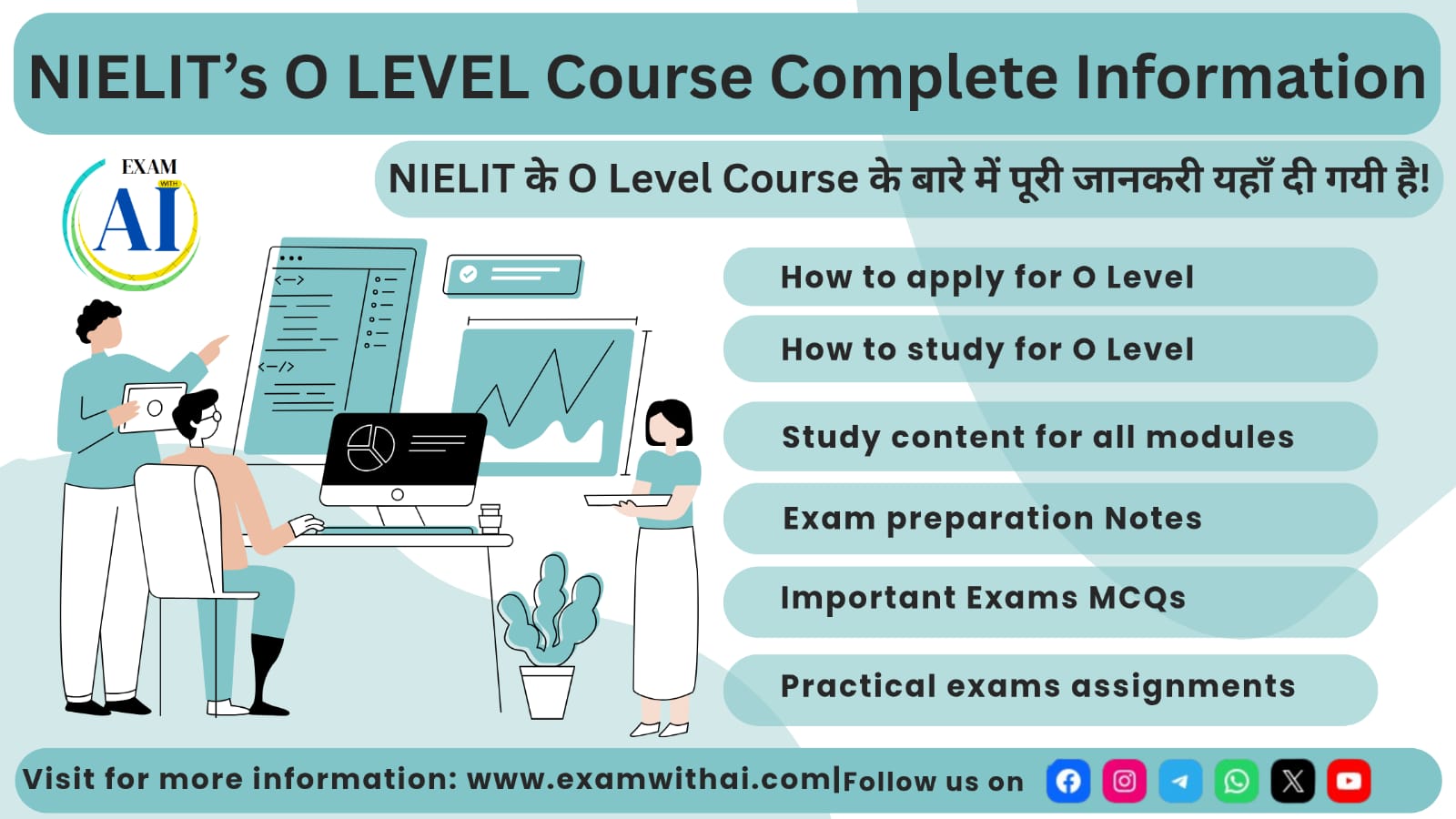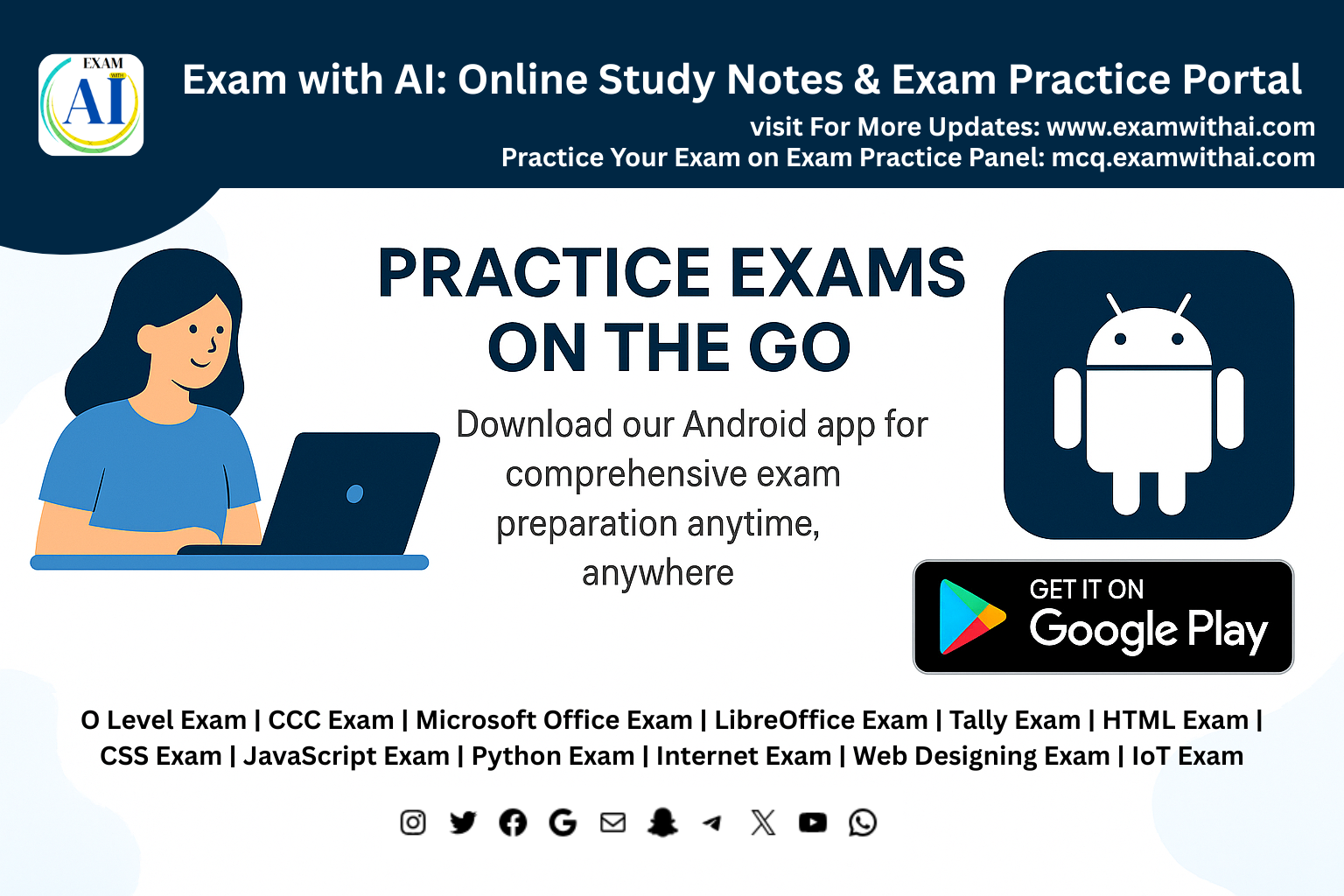
About NIELIT
The National Institute of Electronics and Information Technology (NIELIT) is an autonomous scientific society under the Ministry of Electronics and Information Technology (MeitY), Government of India. Established to promote human resource development in the areas of Information, Electronics, and Communications Technology (IECT), NIELIT offers both formal and non-formal education and training programs.
About O Level Course
The O Level Course is a computer training program offered by NIELIT (National Institute of Electronics and Information Technology) in India. It teaches basic to intermediate computer skills like programming, internet usage, MS Office, and more. This course is very helpful for students and job seekers who want to work in the government or private sectors. Today, most jobs require computer knowledge. Whether it’s for data entry, office work, or using digital tools. That’s why having an O Level certificate improves your chances of getting a job. It proves you have the computer skills needed in today’s digital world.
- Duration: 1 Year
- Registration Validity: 5 Years
- Eligibility: After 10+2
- Semesters: 2 (6 Months Each)
- Exam Conducted: January and July each year
- Certification: Awarded by NIELIT upon successful completion
O Level Syllabus
Theory Syllabus
- Module 1: Information Technology Tools and Network Basics
- Module 2: Web Designing and Publishing
- Module 3: Programming and Problem Solving through Python
- Module 4: Internet of Things and its Applications
Practical Syllabus
Practical of Module 1, Module 2, Module 3, and Module 4.
Project
Project based on web design.
O Level Theory and Practical Exam
According to the O Level Exam, candidates have to pass 2 papers (1 theory and 1 practical) for each module, and there is no negative marking.
About Theory Exam
- This is an MCQ-based online exam that has 100 questions of 100 marks to solve in 90 minutes.
- Questions are available in both English and Hindi, so candidates can easily read and mark answers.
About Practical Exam
This is a computer-based exam that has 3 questions, and candidates have to solve any 2 questions in 90 minutes. Each question is worth 40 marks. (Includes a practical exam for 80 marks and 20 marks for viva.)
Grading System
| Grade | Percentage Range |
| S | 85% and Above |
| A | 75% to 84% |
| B | 65% to 74% |
| C | 55% to 64% |
| D | 50% to 54% |
| Fail | Below 50% |
O Level Certificate
To obtain the NIELIT O Level Certificate, you can apply from accredited institutes or directly from NIELIT’s official website. Follow these steps:
From Direct Students
- To complete the Online Registration Application Form (ORAF), go to the NIELIT Student Portal. (For availability of Registration form, kindly visit its website.)
- According to the new rules, each student must have an APAAR ID to apply.
- Complete the form and submit the application.
- Pay the payment of Rs. 500/- online to complete your form. (Registration Fee may change kindly visit the NIELIT website for updated Registration Fee.)
- After completing your application, it may take a few days to verify and issue your user ID and password to log in to your profile.
- Prepare all your modules (theory, practical, and projects) with us, and we’ll help you to complete your course and get a certificate.
- Fill out the exam form when they arrive on the website.
- Appear in exams and pass all your modules.
- Complete your project and submit it to NIELIT.
- After completing all the above points, your certificate will be released from NIELIT.
From Accredited Institute
Visit your nearest O Level accredited center and complete your course.
Career Opportunities
The O Level certification also serves as a foundation for higher-level certifications and advanced IT courses, further enhancing career prospects.
Study Notes for O Level
Click here for complete study material: theory, practicals, and MCQs for effective learning.

